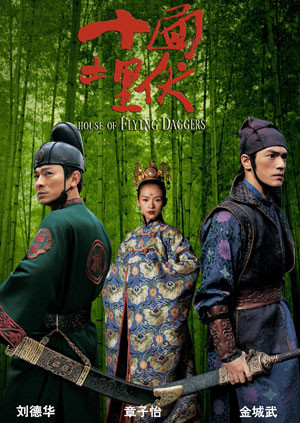 灭火器
灭火器
发表于6分钟前回复 :杨家将屡次率兵击溃外来侵略军,保住了大宋江山,天下太平。杨家将孙媳穆桂英随佘太君辞宫还乡,安居20载,又遇了东安王造反,佘太君关心国家安危,命重孙杨文广、杨金花兄妹赴汴京探听消息。适逢宋王在校场上选拔将才,奸臣王强之子王伦,武艺平庸,却气焰万分,王强向宋王力保王伦为元帅,杨文广兄妹不服,冲进校场,与王伦比武,刀劈王伦。宋王原先以为杨家已绝后,正苦于无人领兵平乱,今见杨家还有这武艺高强的杨文广,并得知女英雄穆桂英尚健在,便将帅印交给杨文广,封穆桂英为征东大元帅。杨文广兄妹携印回家,穆桂英见帅印感慨万分,想杨家世世代代为国尽忠,穿破了无数铁甲,磨坏了多少鞍镫,在沙场上冲锋陷阵,保宋数十载,牺牲了多少英雄好汉,更恨宋王昏庸,奸臣当道,故迟迟不肯接印。佘太君见穆桂英犹豫,说了卫国安民的道理,并要亲自带兵去平番,穆桂英见白发如银的佘太君还有当年勇,难道自己就没有了当年的威风便决意重整旗鼓,发兵剿灭反寇。辕门外三声炮响,穆桂英披上了铁甲,威风凛凛,在天波府调兵遣将,斥训了杨文广骄傲轻敌,整顿军风。佘太君亲到校场饯别。瞬时金鼓震天,旌旗蔽日,杨家老小英雄个个精神抖擞,气概昂扬,穆桂英率领大军,浩浩荡荡,向边塞进发。
 李进才
李进才
发表于4分钟前回复 :Sixty Glorious Years is an exercise in the creation of iconography, both for Victoria and its star, Anna Neagle (who subsequently became known as 'Regal Neagle'). Just as Elizabeth I commissioned artists to create flattering iconic images for public consumption, so this film performs a similar function, for Neagle is more beautiful than the real life Victoria. Controversial events (such as the 'Irish problem') are omitted and unpleasant aspects of Victoria's character (her petulance, arrogance, favouritism and 'right to privilege') are glossed over as endearing little 'whims'. Albert acts as a moderating influence when she goes too far.The film followed a year after the highly successful Victoria the Great (d. Herbert Wilcox, 1937). Again the screenplay is by Miles Malleson and Robert Vansittart, and many of the supporting cast (the cream of acting talent of period) repeat their roles, this time for the colour cameras. This was the first full length Technicolor film of cinematographer Freddie Young, who captures the spectacle of royal weddings, grand balls and opulent interiors, with scenes actually filmed at royal palaces. Vivid battle scenes, set in Alexander Korda's empire territory (Sevastopol and the Sudan), rival those in The Four Feathers (d. Zoltan Korda 1939).The title music sets the tone: a regal choir sings over a shot of the crown. Elgar's 1901 'Pomp and Circumstance' march is heard during the diamond jubilee celebrations and, as Victoria's coffin lies in state, the film concludes with Anthony Collins' stately music accompanied by the text of Rudyard Kipling's 'Lest we forget'. Combined with the emotional appeal of scenes of Victoria connecting with her 'ordinary folk', this is stirring stuff.The film connects with contemporary events of 1938. The release of two celebratory royal films was intended to boost public affection for the monarchy in the wake of Edward VIII's abdication. Anglo-German relations were another touchy subject. With another war on the horizon, influential voices wanted appeasement, and the film could be seen to fit that agenda. Victoria herself was of mainly German descent, nicknamed 'the grandmother of Europe', while Albert is a 'good German', charmingly played by Anton Walbrook as a cultured, decent man.Sixty Glorious Years now seems unduly formal and reverential. Had movies existed during Victoria's reign (they only emerged at the end) this might have been the kind of film produced. Unlike Mrs Brown (d. John Madden, 1997), it is all so very 'Victorian'.Roger Philip Mellor

